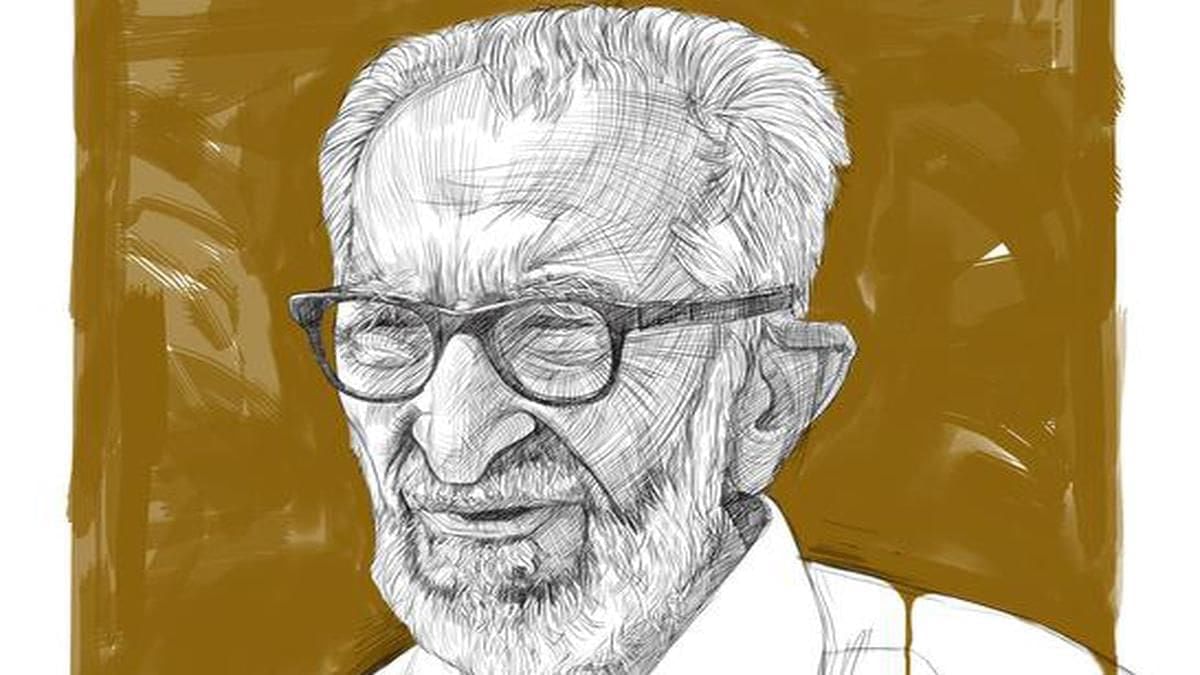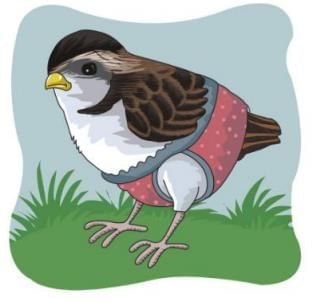Hide-and-seek with Salim Ali Chapter Notes | English Class 6 ICSE PDF Download
| Table of contents |

|
| Introduction |

|
| Key Points |

|
| Explanation |

|
| Message |

|
Introduction
The chapter "Hide-and-seek with Salim Ali" by Zai Whitaker is a heartwarming story about Dr. Salim Ali, a famous Indian ornithologist known as the Birdman of India. Written to celebrate his 121st birth anniversary, it shares personal stories from his grand-niece about her childhood experiences with him. The chapter highlights how his deep love for birds and busy work life often clashed with the fun games his cousins played, like hide-and-seek. It gives a glimpse into the life of a legendary figure and how his family admired and lived with him.
 Zai Whitaker
Zai Whitaker
Key Points
This story is about:
- Dr. Salim Ali was a famous ornithologist who studied birds and earned the title Birdman of India.
- His grand-niece, Zai Whitaker, shares fond memories of growing up with him as a child.
- He lived with his grandparents at their large house at 46 Pali Hill, Bandra, Bombay.
- The cousins loved playing hide-and-seek, but it often disturbed Salim Ali while he worked on his books and bird surveys.
- From a young age, Salim Ali loved birds, and his family supported this passion throughout his life.
- Special family times included enjoying delicious food, celebrating mango season at Kihim, and his regular evening walks.
- He had a great sense of humor and enjoyed sharing jokes with family, making meals lively.
- He conducted important studies on birds, like the nesting habits of weaver birds, during his walks.
- Zai Whitaker learned about nature from him but also faced funny moments, like mistaking a squirrel’s call for a bird.
Explanation
Family Legend and Hide-and-seek
Dr. Salim Ali was a celebrated bird expert, admired by his family as a legendary figure. His grand-niece, Zai Whitaker, recalls how his busy life with bird studies sometimes made it hard for the family to connect with him. The cousins were very fond of playing hide-and-seek, a noisy game that often interrupted his work on his famous book, the Handbook of the Birds of India and Pakistan.

She remembers hiding under the bed with her cousins, holding their breath as his angry footsteps approached, upset by the noise. Luckily, Salim Ali, despite being a skilled bird observer, never thought to look under the bed and never found them, which was a relief for the children.
Life at 46 Pali Hill
Salim Ali lived with his grandparents, Nani and Nana, in their big house at 46 Pali Hill, Bandra, Bombay, which felt like a grand place with many rooms and a busy kitchen. Their cook, Shamsoo, prepared tasty dishes like kababs, puddings, jams, jellies, and peanut brittle, which Salim called "gotso."
The family used special words like "nemaki" for nightgown and "nakori" for leftovers, possibly picked up from places like Japan, Burma, or Gujarat where they had lived. The cousins ate so much that there was hardly any nakori left. Salim was especially pampered by Nani, who acted like a mother to him after his parents passed away. Once, when he adopted a baby sparrow that wouldn’t stay clean, Nani even sewed tiny knickers for it, showing her love and support for his bird passion.

Work and Humor
When Salim wasn’t traveling for bird research, he stayed in his office, typing on his typewriter, reading bird books, or writing neat field notes with his beautiful handwriting. He only came out for meals and his long evening walks. During meals, his funny jokes and stories made everyone laugh a lot, though they were hard to repeat without his gestures and expressions.
He and his grandparents had favorite old jokes, like teasing the Patels, neighbors who enjoyed meals at their house but never invited them back. He’d jokingly tell Nani not to cook, saying the Patels might invite them that day. In summer, he slept outside under a star fruit tree with his shotgun, chatting with neighbor Dilip Kumar, who once threw a lemon to Zai from their balcony.

Mango Season at Kihim
The best family times were at Kihim, a seaside retreat near Alibag, during the alphonso mango season in April and May, which matched the cousins’ school holidays. The delicious mangoes kept everyone, including Salim, in a good mood, allowing the children to yell, screech, and even get away with some mischief.
Salim, called Saloo by Nani, was given the best mango from a big pile carried in by Ibrahim after lunch, which Nani carefully chose for him. The huts at Kihim had no electricity, phones, or running water, so after swimming in the sea, they pulled water from a well for a quick bath. Nana joined the children in the sea, but Salim never did, leading the cousins to whisper about whether he could swim. They never asked, thinking it was disrespectful to bother a legend with such small matters.
Evening Walks
Like in Bandra, Salim spent his days working but enjoyed evening walks after tea, often with binoculars around his neck. He walked along the beach or the Kihim Backs (woods, orchards, fields, and marshes), where he did groundbreaking research on weaver birds’ nesting habits. He carried a walking stick, using it to playfully catch a niece or nephew by the neck, shouting “Bandar ko pakda!” (“Caught a monkey!”).

Sometimes, a cousin joined him, and Zai once guessed a squirrel’s call as a “spotted dove,” making Salim smile and tease her by calling it a “bird called squirrel.” Embarrassed, she avoided his walking path and returned to playing hide-and-seek.
Message
The chapter teaches us to respect people who dedicate their lives to their passions, like Salim Ali did with birds. It shows how family support can help someone achieve great things and how love can make even a busy life special. It also encourages balancing work with fun and learning from mistakes with a positive attitude.
New Words with Meanings
- Ornithologist: A person who studies birds scientifically.
- Anecdote: A short, funny story about real events.
- Infernal: Annoying and tiresome.
- Detour: A visit to another place by taking a longer route.
- Raucous: Very loud and noisy.
- Cowering: Shrinking or crouching in fear.
- Anteroom: A small waiting room leading to the main room.
- Bona fide: Genuine or real.
- Congregated: Gathered or assembled together.
- Lean-to: A small shed supported by trees or posts with a slanted roof.
- Brash: Overconfident and not caring about others' feelings.
- Trivia: Things that are not very important.
- Weather-beaten: Worn and wrinkled due to long exposure to sun, wind, and rain.
|
38 docs|19 tests
|
FAQs on Hide-and-seek with Salim Ali Chapter Notes - English Class 6 ICSE
| 1. What is the significance of Salim Ali in the context of Indian wildlife conservation? |  |
| 2. How did Salim Ali contribute to the field of ornithology? |  |
| 3. What challenges did Salim Ali face in his career as a naturalist? |  |
| 4. What role did Salim Ali play in establishing protected areas in India? |  |
| 5. How can Salim Ali's legacy influence current and future conservation efforts? |  |















